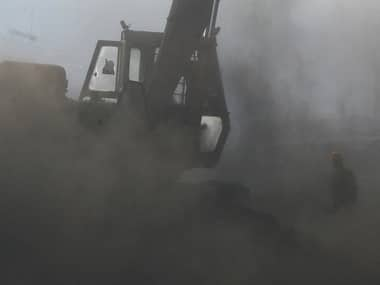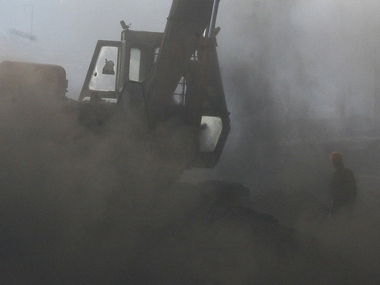The ink has barely dried on the Supreme Court order in the 2G case, but the UPA government is well on its way to tinkering with the auction principle on scarce natural resources.
A few days ago, the government specifically exempted power companies from having to participate in auctions for coal blocks under the Auction by Competitive Bidding for Coal Mines Rules 2012 notified by the coal ministry. Power companies will only pay the reserve price fixed by the state government for such projects, reports Business Standard.
[caption id=“attachment_211936” align=“alignleft” width=“380” caption=“The ink has barely dried on the Supreme Court order in the 2G case. Reuters”]
 [/caption]
[/caption]
The logic for exempting power companies - and not anybody else - from auctions is this: since power companies already bid for power supply on the basis of tariffs, it would become unviable for them to bid for coal blocks, too, since margins depend on the price of coal. If they have to bid at auctions, the project may fall apart.
The argument does not quite wash.
First, there is no guarantee that the reserve prices fixed for coal blocks will automatically make any power tariff bid viable. Unless, the reserve prices are fixed so low that any power tariff will be viable. In which case, legitimate questions can be raised on whether the coal block was sold below the right price.
Secondly, trying to subsume two bids into one is not sensible: it can only lead to more scams. Reason: let’s assume a power player bids low tariffs for a project. To make money from the project, he will have to get the coal at rock-bottom prices. Since there will be two prices for coal in the market - the open market price and the one incurred by the power company in digging the coal out of its block - it is obvious that selling coal in the market would be more profitable than using the coal to produce cheap power.
As things stand, due the high cost of imported coal, power companies are seeking the right to use coal from allotted blocks in other power plants.
In fact, the Comptroller and Auditor General was probing precisely such a diversion by Reliance Power , which got the Sasan ultra mega power project with a coal block attached. It is said to be using the coal for another project.
No prizes for guessing whether this kind of diversion - if true - can happen without an official wink and a nod. The Tatas are already protesting this, and have said that if they knew coal could be diverted, they could have bid lower tariffs, too.
The real problem with keeping coal blocks out of the auction process is, however, something more fundamental. It distorts energy pricing. And also leads to inefficient use of a hydrocarbon resource.
When cancelling the 122 telecom licences issued by Andimuthu Raja, the Supreme Court held that in allotting scarce national resources, the auction route was the best. The verdict, delivered by Justices AK Ganguly and GS Singhvi, said: “We have no doubt that if the method of auction had been adopted for grant of licence, which could be the only rational, transparent method for distribution of national wealth, the nation would have been enriched by many thousand crores.”
If this is the case, it is quite possible that any allotment of coal blocks without an auction could face court scrutiny.
However, the more important illogic relates to economics.
When a depleting resource is allocated not on the basis of market-based pricing, but arbitrarily, it is bound to lead to the underpricing of energy.
If both coal and power are going to be underpriced, it will lead to waste and misuse - as is the case with oil subsidies, where the rich buy diesel cars due to the heavy subsidy on diesel vis–vis petrol.
Price distortions lead to corruption and crookery. Just as the subsidisation of kerosene leads to its adulteration in diesel and petrol, one can safely assume that if coal blocks are not auctioned, it will create space for skullduggery.
One may ask: what if the auction process leads to very high bids where power becomes too expensive?
A simple way to avoid this problem would be to invite dual bids - where the bidder for a power project bids both for the coal, and a power tariff based on the coal bid. The experts will surely have a way of working things out.
Failure to do that is like an invitation to possible corruption.
The 2G scam, after all, was the result of selling spectrum at fixed prices. Does the UPA want another scam in coal now?
)